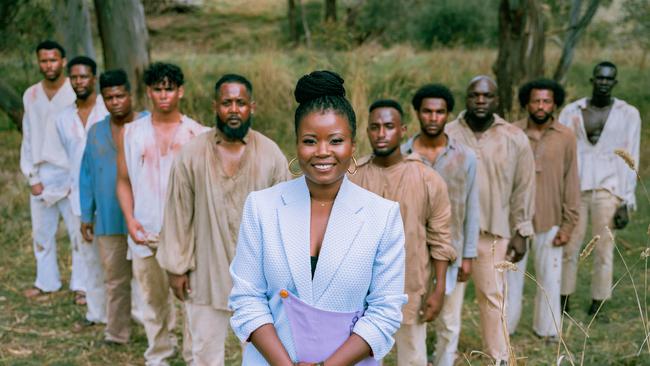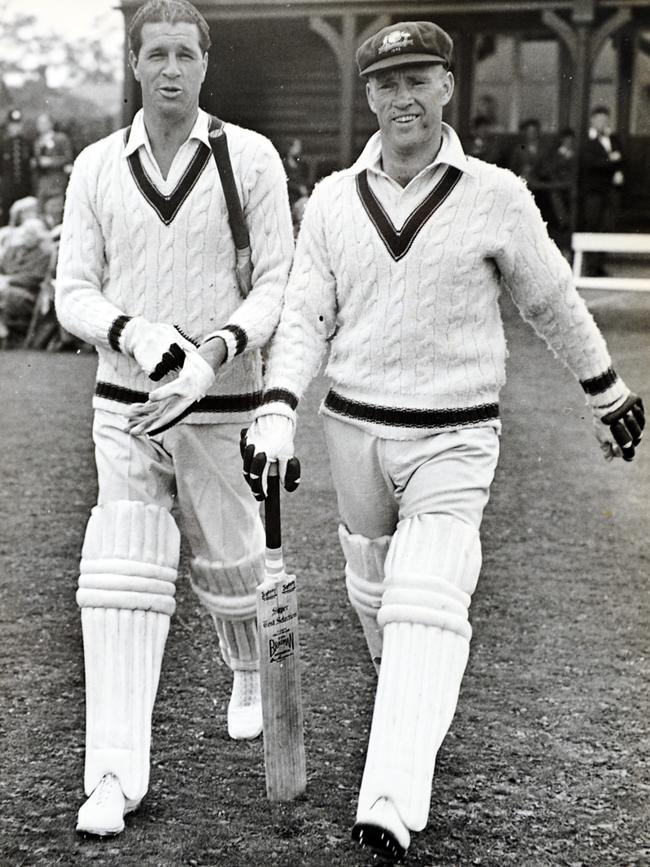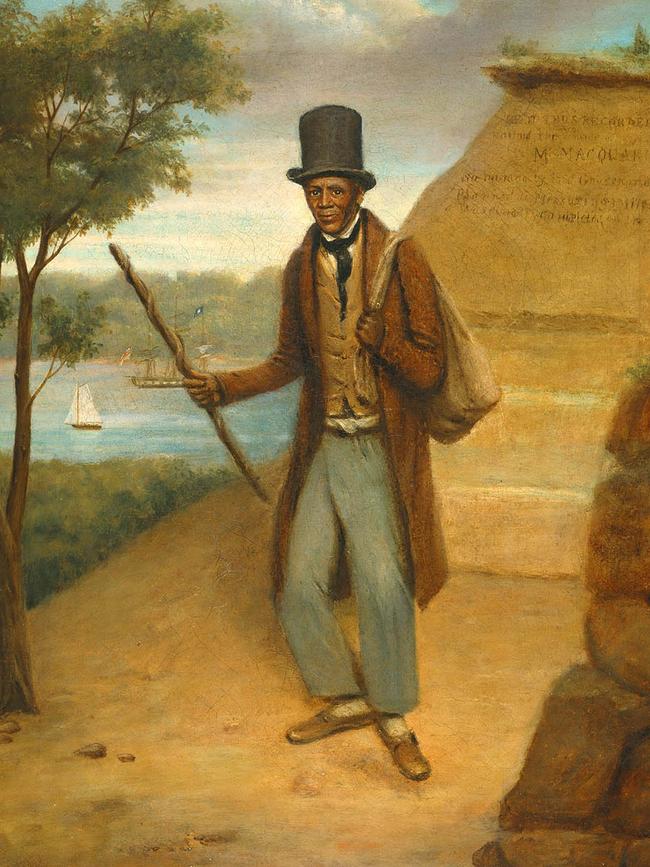NSW history: Our African Roots looks at First Fleet’s forgotten men
From the carnage of Gallipoli to the Test cricket arena, the descendants of 10 African First Fleeters have played pivotal, but often overlooked, roles in our history.

Today in History
Don't miss out on the headlines from Today in History. Followed categories will be added to My News.
When we think of the tired and dishevelled convicts that stepped off the 11 First Fleet ships on to Australian soil in 1788, it is the faces of British prisoners that come instantly to mind. And for the most part, you would be right, British prisoners did make up the bulk of First Fleet convicts.
But how many people know that, among those British faces, were 10 men of African descent?
It is this fact that author Santilla Chingaipe hopes to highlight in her documentary, Our African Roots, now airing on SBS.
The author, host and co-producer, whose book Black Convicts inspired the documentary, says she wants to break the monocultural myth of modern Australia’s white foundation.
These 10 men of African descent that stepped off the First Fleet and their descendants went on to put an indelible stamp on modern Australia.

One was the first man to get married in Australia, another became Australia’s first bushranger, while a third pioneered Sydney’s integral ferry system.
And their descendants also played major roles in our history: one played on Donald Bradman’s famed Invincibles Test cricket team; one fought for Australia at Gallipoli; and one was a Eureka rebel tried for treason. A woman of African descent would go on to be the first female to vote in Australia.
“There’s always been this narrative talking about Africans as unwelcome guests (to Australia) and recent arrivals, but I knew that was not correct,” Chingaipe says.
“I’d heard stories of African convicts on the First Fleet, it was like an open secret, so it didn’t surprise me that they kept showing up at critical points in our history.”
John Randall was 22 when he arrived in Australia in 1788. He was an African slave who had fought for the British in the American War of Independence and was later transported to NSW for stealing a watch chain in Manchester.
He married his Irish bride, Mary Butler, shortly after arriving in the new colony and became the patriarch of one of Australia’s first multicultural families and one of the largest First Fleet dynasties, said to number into the thousands today.
John Caesar was convicted of stealing £12 in London and transported to NSW on the First Fleet where he remained on the wrong side of the law. Punished repeatedly with floggings, hard labour and deprived of his rations, Caesar escaped his chains and became Australia’s first bushranger.
But few would know the myth of the bushranger, so lauded in Australia, had an African man at its foundation.
Anyone who has visited North Sydney will have heard of Blues Point Road. And there’s a very good reason why Blues Point Reserve has one of the best views of Sydney Harbour.

Convict William “Billy” Blue started life as an African-American slave but was later sent to NSW for stealing sugar in London.
He soon got his waterman’s licence and started taking passengers, including Governor Lachlan Macquarie, on the important route from Sydney Cove to North Sydney.
The friendship with the governor resulted in Billy getting 80 acres of land roughly where Blues Point Rd is today and he is credited with laying the foundations for the whole of the north shore.
Following the Eureka Rebellion of 1854, John Joseph, originally from New York, was arrested for his involvement and taken to Melbourne. Joseph was the first of 13 rebels tried, the governor thinking the jury would easily convict a black man and set a tone of guilt for the 12 that followed.
But the prosecution plan failed when he was acquitted and pronounced a hero instead. The 12 other rebels were also acquitted.
The Eureka story is one that is taught throughout Australian schools, Chingaipe says, but Joseph’s prominent role is never mentioned.
“We aren’t very good at talking about our history and how we got where we are,” says Chingaipe.
“So many descendants of these men had no idea they had African ancestry.
“I hope this gets the conversation started.”
Our African Roots is now screening on SBS and SBS On Demand
Got a local history story to tell? Email mercedes.maguire@news.com.au
FANNY FOUGHT BACK WITH VOTE
Fanny Finch becomes the first businesswoman in the Victorian goldfields town of Castlemaine when she opens a restaurant and boarding house there in 1851 called True Blue. But with her race and gender playing against her, a harassment campaign soon begins with locals wanting to run her out of town. Instead, the brave woman doubles down and seeks to arm herself with the ability to vote, her right as a ratepayer. Her efforts paid off in 1856 when she became one of the first named women to vote in Australia. Victorian women wouldn’t receive the right until 1908, Victorian Indigenous women not until 1965.
TESTING TIMES FOR DESCENDANTS
At the same time that William Davies, a descendant of First Fleeter John Randall, was fighting for his country at Gallipoli and France during World War I, Prime Minister Billy Hughes was urging new recruits to “fight for White Australia in France” at a conscription rally. It’s a stark irony that touched author Santilla Chingaipe while making Our African Roots. “When he returned (from war) he wouldn’t leave the house due to the discrimination,” she says. “It’s so heartbreaking.” Only 30 years later, spin bowler Ernie Toshack, also a descendant of John Randall, was lauded for his place alongside Don Bradman in The Invincibles.





